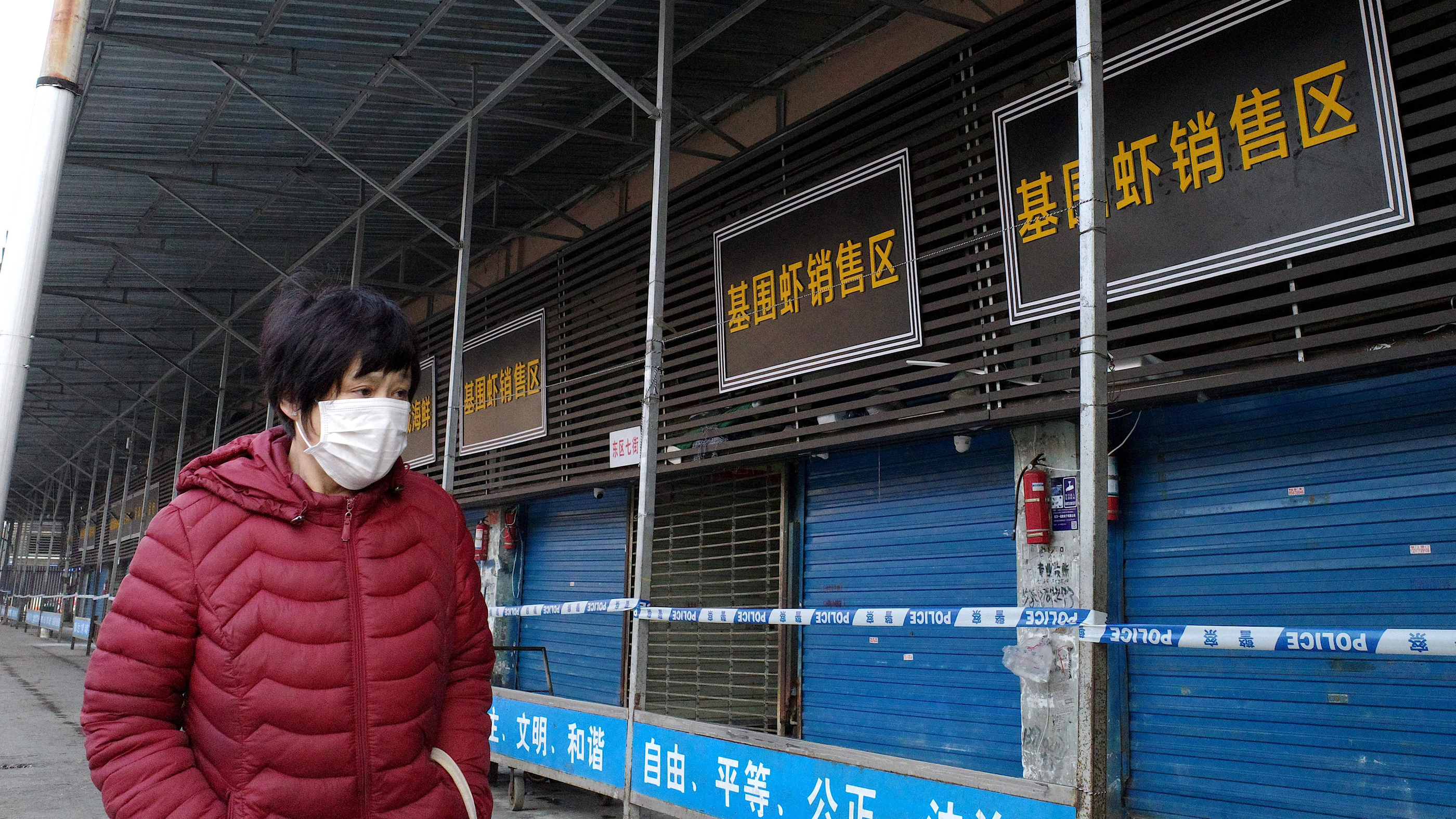
New SARS-Like Virus in China May Spread Between People in Limited Cases
The risk of human-to-human transmission appears to be low.

Get the world’s most fascinating discoveries delivered straight to your inbox.
You are now subscribed
Your newsletter sign-up was successful
Want to add more newsletters?

Delivered Daily
Daily Newsletter
Sign up for the latest discoveries, groundbreaking research and fascinating breakthroughs that impact you and the wider world direct to your inbox.

Once a week
Life's Little Mysteries
Feed your curiosity with an exclusive mystery every week, solved with science and delivered direct to your inbox before it's seen anywhere else.

Once a week
How It Works
Sign up to our free science & technology newsletter for your weekly fix of fascinating articles, quick quizzes, amazing images, and more

Delivered daily
Space.com Newsletter
Breaking space news, the latest updates on rocket launches, skywatching events and more!

Once a month
Watch This Space
Sign up to our monthly entertainment newsletter to keep up with all our coverage of the latest sci-fi and space movies, tv shows, games and books.

Once a week
Night Sky This Week
Discover this week's must-see night sky events, moon phases, and stunning astrophotos. Sign up for our skywatching newsletter and explore the universe with us!
Join the club
Get full access to premium articles, exclusive features and a growing list of member rewards.
The new virus in China that's causing an outbreak of pneumonia may be able to spread between people under certain circumstances, although the risk of such transmission appears to be low, according to news reports.
So far, the virus — a new type of coronavirus — has sickened at least 41 people in the Chinese city of Wuhan and has been linked to one death, according to the World Health Organization (WHO).
Investigation into how the virus is spread is ongoing, but "from the information that we have, it is possible that there is limited human-to-human transmission, potentially among families," Maria Van Kerkhove, acting head of WHO's emerging diseases unit, said in a news conference, according to Reuters. "But it is very clear right now that we have no sustained human-to-human transmission."
Many of those infected had either worked at or frequently visited a seafood market in Wuhan. But there is evidence that one woman may have caught the virus from her husband, according to CBS News. In that case, the woman's husband was a worker at the market and got sick with the virus. Some days later, the woman fell ill as well, even though she did not visit the market. This suggests that the husband may have passed the virus to her, Chinese officials said.
Still, it's important to note that hundreds of people, including health care workers, have been in close contact with infected patients without contracting the virus, CBS News reported.
Coronaviruses are a large family of viruses that cause respiratory illnesses, according to the Centers for Disease Control and Prevention. This family includes the viruses that cause SARS (severe acute respiratory syndrome) and MERS (Middle East respiratory syndrome), as well as viruses that cause milder illnesses, like the common cold.
The new virus, known for now as 2019-nCoV, was first identified on Jan. 7, about a week after officials first reported a cluster of pneumonia cases in Wuhan, WHO said.
Get the world’s most fascinating discoveries delivered straight to your inbox.
Recently, officials reported the first "exported" case of the virus in Thailand. In that case, a resident of Wuhan got on a direct flight to Thailand along with several members of her family and a tour group, according to WHO. When the 61-year-old woman arrived at the airport, she was found to have a fever, and she was taken to the hospital where she tested positive for 2019-nCoV. The woman is now recovering, and officials continue to investigate the case.
- The 9 Deadliest Viruses on Earth
- 10 Deadly Diseases That Hopped Across Species
- 11 Surprising Facts About the Respiratory System
Originally published on Live Science.

Rachael is a Live Science contributor, and was a former channel editor and senior writer for Live Science between 2010 and 2022. She has a master's degree in journalism from New York University's Science, Health and Environmental Reporting Program. She also holds a B.S. in molecular biology and an M.S. in biology from the University of California, San Diego. Her work has appeared in Scienceline, The Washington Post and Scientific American.
 Live Science Plus
Live Science Plus










